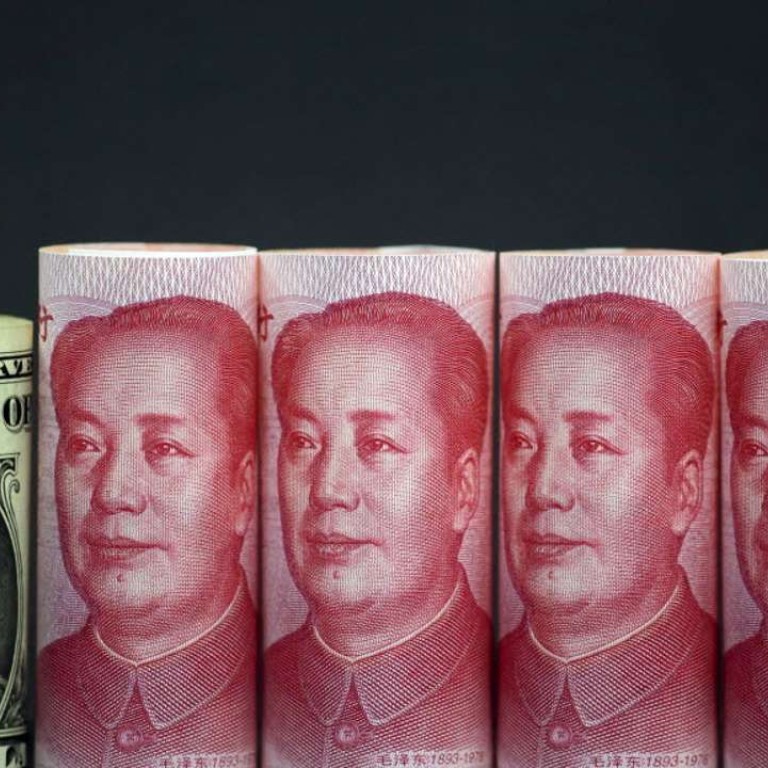
China’s capital account opening is on ‘a stable path’: economist
Prominent economist Ba Shusong suggests expanding Shanghai-Hong Kong stock connect model to the bonds and commodities markets
The opening up of China’s capital account was on a “prudent and steady” path, a prominent Chinese economist said on Monday.
Beijing was doing more to encourage capital inflows while being cautious in opening outflow channels, said Ba Shusong, chief China economist of Hong Kong Exchanges and Clearing Ltd and a former senior researcher with the State Council’s think tank. He was speaking on the second and final day of the Lujiazui Forum in Shanghai.
He said the Shanghai-Hong Kong stock connect model could be replicated elsewhere as China continued to open its capital account.
China promises to loosen capital control, but no rapid progress expected
It could be expanded to the bonds and commodities markets, as part of a broader initiative to open the capital account, he said.
The People’s Bank of China ended its soft peg to the greenback in August 2015 by devaluing the yuan nearly 3 per cent and reforming it to fluctuate against a basket of currencies of major trading partners including the United States, Britain, South Korea, and Japan.
Investors are seeking better returns elsewhere due to expectations of interest rate increases in the US, China’s sluggish economic performance, and a weaker yuan.
Last month, the mainland’s foreign exchange reserves fell to US$3.19 trillion, the lowest level since December 2011. The forex reserves fell by US$27.9 billion in May, after rising for two straight months in March and April.
Beijing weighs further opening of capital accounts in post-Fed hike era
China has been tightening controls on capital outflows.
It is setting up a watch list of people suspected of using their annual foreign-exchange quota of US$50,000 or equivalent to lend to other people.
The authorities say the quota is sufficient for tourists and overseas students but fear some people are abusing it for money laundering purposes and illegal overseas investments.
Individuals are forbidden to transfer more than US$50,000 overseas within one day, without proof of payment.
UnionPay this year slapped a 100,000 yuan (HK$118,000) annual limit on withdrawals overseas, in line with a PBOC directive.
Peng Wensheng, global chief economist of Citic Securities, said capital account controls alone could not succeed in stabilising foreign exchange levels.
How Shenzhen-Hong Kong stock connect blunder reveals central bank governor’s ambition to take charge of China’s capital accounts reform
He said China must make its foreign exchange regime more flexible.
He said the current practice of pegging to a basket of currencies, in which the US dollar’s weight was less than 20 per cent, did not fully reflect the greenback’s significance in financial transactions globally.
We know investment from private capital is shrinking for reasons including rising land, rental and labour costs
He said past expectations of a rising yuan had helped shore up asset bubbles together with a flood of credit, ultimately undermining private investment confidence in the real economy.
“We know investment from private capital is shrinking for reasons including rising land, rental and labour costs,” Peng said.
Call for more capital account convertibility before yuan joins IMF’s SDR currency basket
“However, the fundamental factor is the real estate and financial sectors [took up] too much [of China’s] social resources.”
Economists highlighted an urgent need for major economies to coordinate on monetary policy as one country’s decisions were likely to affect the rest of the world given increasingly integrated global economic development.
Lian Ping, chief economist at Bank of Communications, said major economies including the US, European Union, and Japan should coordinate more and address the growing divergence of their monetary policies.

